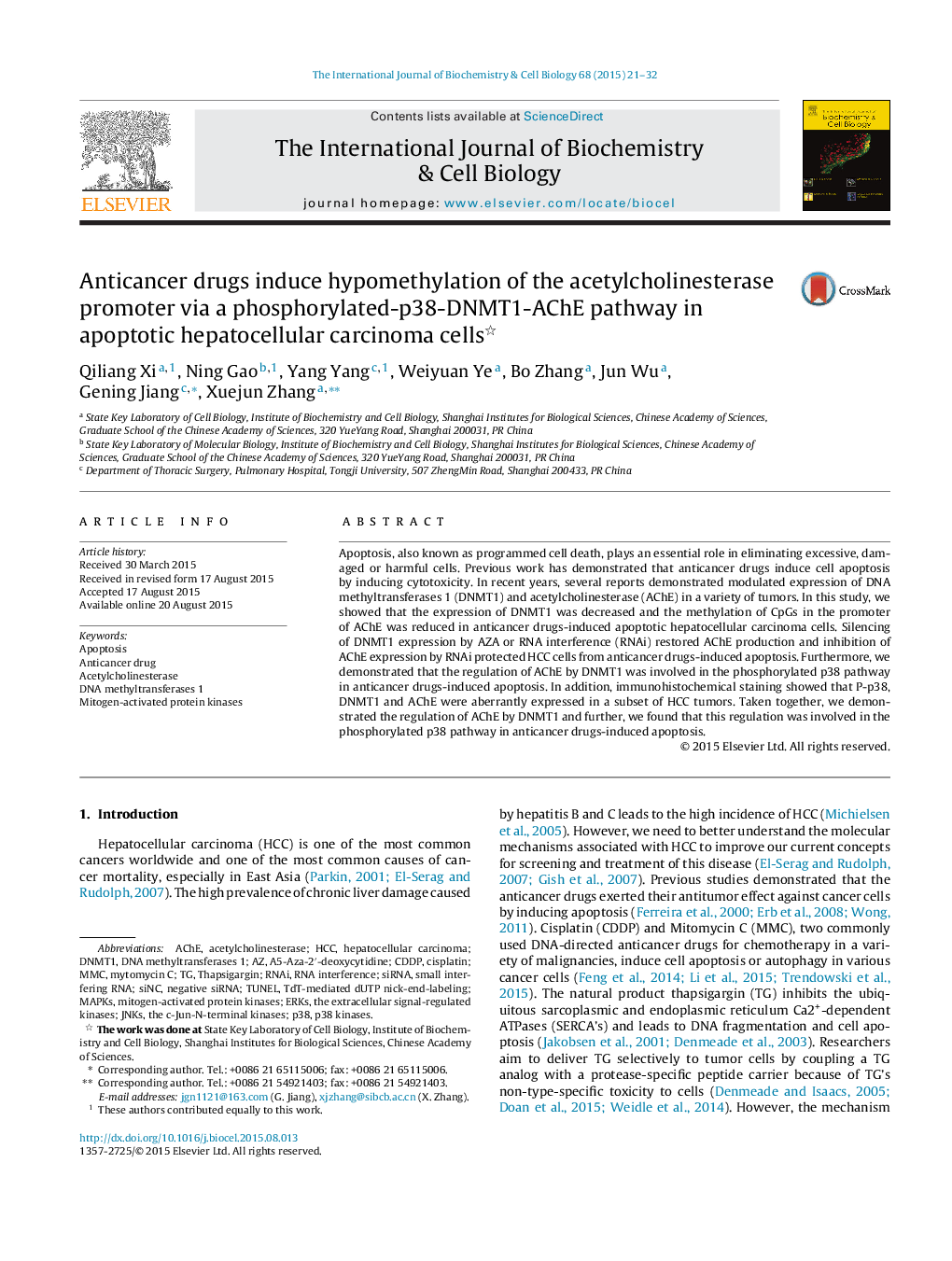| Article ID | Journal | Published Year | Pages | File Type |
|---|---|---|---|---|
| 1983443 | The International Journal of Biochemistry & Cell Biology | 2015 | 12 Pages |
Apoptosis, also known as programmed cell death, plays an essential role in eliminating excessive, damaged or harmful cells. Previous work has demonstrated that anticancer drugs induce cell apoptosis by inducing cytotoxicity. In recent years, several reports demonstrated modulated expression of DNA methyltransferases 1 (DNMT1) and acetylcholinesterase (AChE) in a variety of tumors. In this study, we showed that the expression of DNMT1 was decreased and the methylation of CpGs in the promoter of AChE was reduced in anticancer drugs-induced apoptotic hepatocellular carcinoma cells. Silencing of DNMT1 expression by AZA or RNA interference (RNAi) restored AChE production and inhibition of AChE expression by RNAi protected HCC cells from anticancer drugs-induced apoptosis. Furthermore, we demonstrated that the regulation of AChE by DNMT1 was involved in the phosphorylated p38 pathway in anticancer drugs-induced apoptosis. In addition, immunohistochemical staining showed that P-p38, DNMT1 and AChE were aberrantly expressed in a subset of HCC tumors. Taken together, we demonstrated the regulation of AChE by DNMT1 and further, we found that this regulation was involved in the phosphorylated p38 pathway in anticancer drugs-induced apoptosis.
